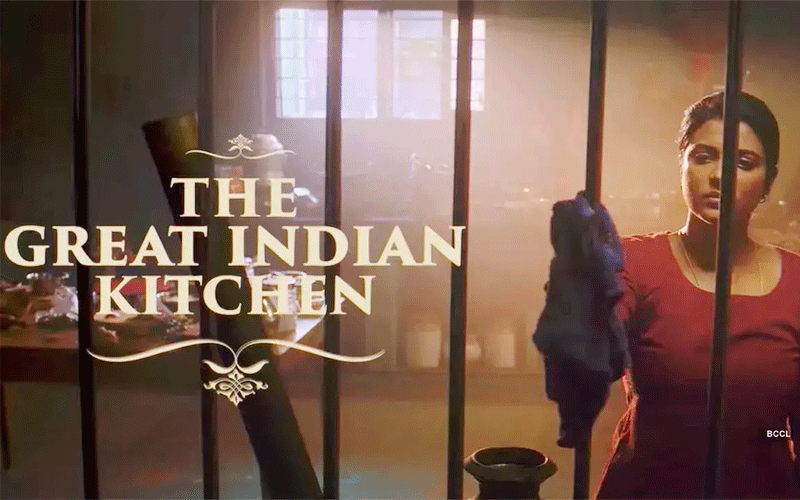“The Great Indian Kitchen” is a thought-provoking film that bravely delves into the pervasive patriarchal norms that continue to dominate Indian households. Directed by Jeo Baby and featuring an outstanding performance by Aishwarya Rajesh, the movie sheds light on the struggles faced by women who are confined to the kitchen and household chores, while also highlighting the need for change and liberation.
Unveiling the Shackles of Patriarchy:
The film’s narrative revolves around a young woman (played by Aishwarya Rajesh) who enters into married life with dreams and aspirations. However, she quickly discovers that her husband, a sociology teacher, upholds patriarchal beliefs, emphasizing male dominance even if they fail to fulfill the family’s economic needs. This realization sets the stage for a poignant exploration of gender roles and expectations within the household.
Subtle yet Powerful Portrayal:
“The Great Indian Kitchen” masterfully captures the struggles and sacrifices endured by the central character. Aishwarya Rajesh delivers a powerhouse performance, perfectly embodying the role of a woman battling against societal expectations and gender inequality. Through her subtle expressions and nuanced acting, Rajesh skillfully portrays the frustrations, hopes, and eventual strength of her character.
The Everyday Conflict:
What sets this film apart is its ability to transform the mundane into the extraordinary. The repetitive scenes of the protagonist washing utensils, cleaning sinks, and performing other household chores may seem simple on the surface. However, they act as powerful symbols of the unseen labor and oppressive norms that countless women face every day. These moments serve as a stark reminder of the underlying conflicts that need to be addressed and rectified.
Challenging Traditional Roles:
“The Great Indian Kitchen” fearlessly confronts the traditional roles assigned to women within Indian society. It questions the unquestionable, exposing the deeply ingrained biases and expectations that hinder women’s progress and restrict their choices. By presenting these challenges, the film sparks a vital conversation on the need for gender equality and reevaluation of societal norms.
Supporting Cast and Technical Brilliance:
Alongside Aishwarya Rajesh’s remarkable performance, Rahul Ravindran’s portrayal of a chauvinistic and self-centered husband adds depth to the story. Despite a few instances where emotional delivery falls short, Ravindran manages to engage viewers with his character’s flawed nature. Yogi Babu’s surprise cameo brings a refreshing element to the narrative.
“The Great Indian Kitchen” excels in its cinematography, skillfully capturing the emotions and capturing the essence of each scene. The background score, while not as prominent, complements the storytelling and enhances certain moments.
Conclusion:
“The Great Indian Kitchen” stands as a powerful cinematic experience that shines a much-needed light on the oppressive patriarchal structures that persist in Indian households. The film serves as a wake-up call, urging society to challenge traditional gender roles and embrace true equality. By addressing the conflicts faced by women confined to the kitchen, it advocates for liberation, and empowerment.





